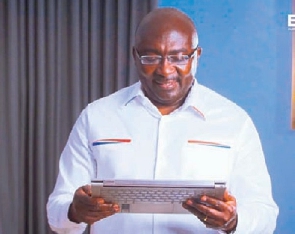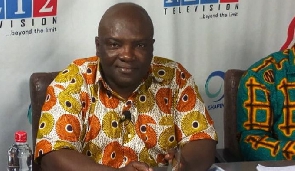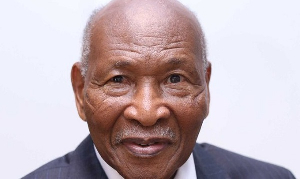Opinions of Saturday, 18 November 2023
Columnist: Ebenezer Larnyo
To resign or not to resign: Preventing abuse of incumbency by vice presidents running for president in Ghana
Ghana is a young democracy, and as such, it is still developing its institutions and norms.
One area where there is room for improvement is in the regulation of vice presidents who are running for president. On May 3, 2023, the Vice President declared his intention to lead the NPP in the 2024 general election. Between May 3 and November 4, 2023, the vice president engaged in several campaign activities to secure the mandate of his party to lead them into the “Election 2024”.
Now that he’s been successful in doing so, he will have to begin campaigning immediately for almost a year since the election will be conducted in December 2024. The question then is, who pays for the logistics of a sitting vice president who’s campaigning to be a president?
Does he get paid for absenting himself from work, and for how long? Can campaigning as an incumbent be deemed as work done for and on behalf of the government? Though I concede this is a complex question with no easy answer, there has to be a way to bring these discussions to the forefront as we go into “Election 2024”.
Currently, there are no rules that require vice presidents to take a leave of absence from their government duties while campaigning for president. This means that they can use government resources for campaign purposes and can also be absent from their job for extended periods. This phenomenon creates several potential problems.
First, it gives vice presidents an unfair advantage over their opponents in the presidential race. As vice president, they have access to a significant amount of government resources, such as staff, travel, and office space.
They can use these resources to advance their campaign, while their opponents must rely on their resources. Also, as vice president, they are already well-known to the public. This can give them a significant advantage in fundraising and in getting their message out to voters.
Incumbents often have an advantage in elections because voters are more likely to vote for someone they know and trust. This advantage can be even greater for vice presidents, who are often seen as the natural successors of the president.
An example of an unfair advantage is the use of government platforms. As vice president, they have the opportunity to use their position to promote their agenda and to attack their opponents. They can also use their position to travel to different parts of the country and to meet with potential voters.
Furthermore, as vice president, they have access to classified information that their opponents do not. This information can give them an advantage in understanding the issues and in developing their campaign strategy. Another example is the ability to leverage existing relationships.
As vice president, they have already established relationships with many important people, such as members of parliament, foreign leaders, and business leaders. They can use these relationships to advance their campaign.
Second, it can lead to corruption, as vice presidents may be tempted to use their position to enrich themselves or their supporters. As vice president, they can use their position to advocate for the interests of special interest groups, such as corporations or lobbyists.
In return for their support, these groups may donate money to the vice president's campaign or offer them other valuable favors. Third, it can lead to absence from duty, as vice presidents may focus more on their campaign than on their government job. Running for president is a full-time job.
It requires a lot of time and travel, and it can be very stressful. As a result, vice presidents who are campaigning for president may find it difficult to keep up with their government duties.
There are several things that we can do to address these problems. First, the country could require vice presidents to take a leave of absence from their government duties while campaigning for president. This would prevent him/her from using government resources for campaign purposes and would also ensure that he or she is focused on their campaign rather than their government job.
Second, we, through the electoral commission could create an “incumbent campaign budget transparency” unit for incumbent presidents and vice presidents seeking to contest for elections or re-election.
This unit will publish publicly the president/vice-president’s budget and itinerary, how much they spent or intend to spend on their campaign, how much time they spent or intend to spend away from their substantive office, and whether or not they are being paid for the period of absence.
This would prevent them from using government funds for their campaigns and would also make it easier to track their campaign spending and regulate the appropriate use of the people’s time.
Third, we could establish stricter limits on the amount of money that individuals and organizations can donate to an incumbent's campaign. This would help to reduce the risk of corruption. Additionally, we could require the vice president to disclose more information about their financial affairs.
This would make it more difficult for them to hide any potential conflicts of interest.
Fourth, we could increase the transparency of the vice president's campaign. This would make it easier for the public to track the vice president's spending and to hold them accountable for their actions.
Finally, we could create a new office, such as a "caretaker president or vice president," to take over their duties while they are campaigning for president. This would ensure that the government functions smoothly even when they are absent. We could also review our laws to compel vice presidents to resign from their posts entirely if they seek to contest elections.
By taking these steps, we can help to prevent abuse of incumbency, corruption, absence from duty, and other problems that may arise when a sitting president or vice president is campaigning for re-election or the presidency in the case of a vice president.













